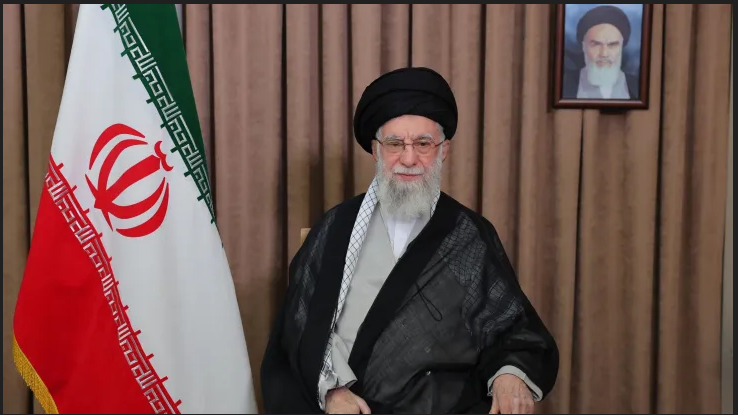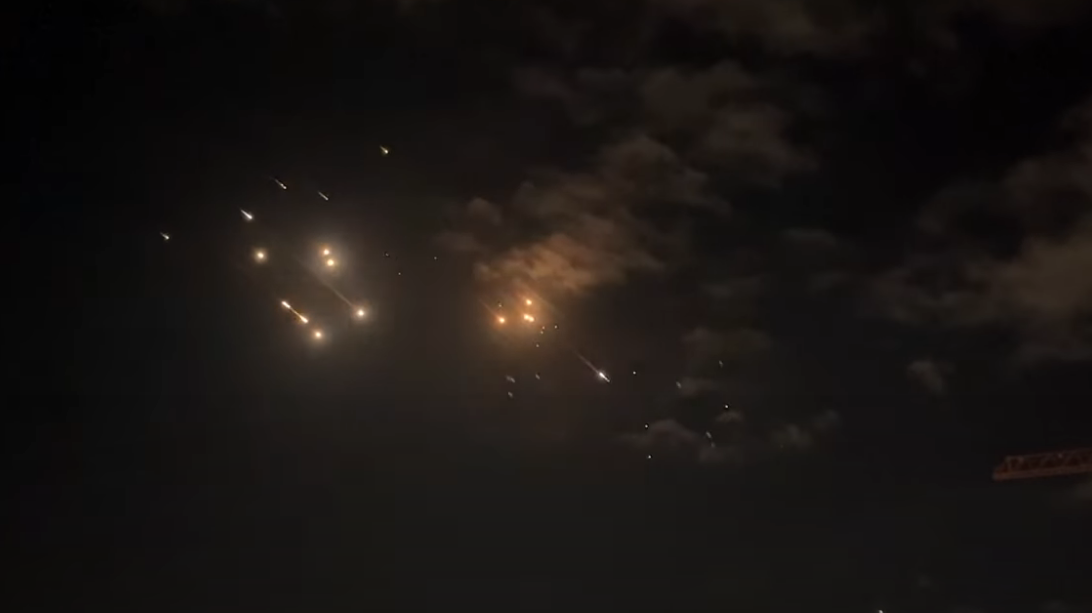
Tehran, Iran – In a decisive national speech, Iran’s Supreme Leader Ayatollah Ali Khamenei declared that Iran will “never yield” to pressure, hostility, or intimidation. The announcement surfaces in the context of escalating tensions and ongoing military action between Iran and Israel, which has now reached its fifth consecutive day.
The clash, which started with border assaults and indirect attacks, has escalated into a severe confrontation, increasing concerns of a wider regional conflict.Khamenei’s address sought to elevate national spirit and convey a powerful message to Iran’s enemies, especially Israel and its Western partners.
Israel’s Assertive Position
During a press conference in Jerusalem, Israeli Prime Minister Benjamin Netanyahu labeled Iran as the “biggest danger to peace in the Middle East.” Netanyahu states that Iran’s ongoing backing of Militant groups across Lebanon, Syria, and Gaza represent a direct danger to Israel’s national security.
He asserted that the recent missile strikes on northern Israeli cities were orchestrated by Iran’s Islamic Revolutionary Guard Corps (IRGC) through proxies such as Hezbollah. The Israeli Defense Forces (IDF) conducted a number of precise airstrikes on what it alleged were Iranian military facilities in Syria and Iraq, such as weapon storage sites and command posts.
“Netanyahu declared that Israel will protect itself from any threats.” “We will not permit Iran to secure its position along our borders.”
Iran’s Resolute Reaction
Khamenei’s reply was clear-cut. In his address, he announced:
“Iran is a strong country.” We have never submitted to oppression, and we never shall. “Any act of aggression will invoke a strong, damaging response.”
He blamed Israel for inciting instability in the area and functioning as a tool of Western agendas. Khamenei cautioned that any additional Israeli hostility would spark a “regional inferno” that Tel Aviv would struggle to manage.
He also emphasized Iran’s military preparedness, commending the IRGC for its alertness and assuring that “the adversaries of the Islamic Republic will rue their errors.”

Global Response
United Nations Secretary-General António Guterres voiced significant worry about the escalation, calling on both nations to demonstrate utmost restraint and promptly revert to diplomatic discussions.
The European Union denounced the assaults from each side and proposed to facilitate mediation. The United States, a longstanding ally of Israel, reiterated its backing for Israeli defense while also promoting de-escalation to prevent a broader conflict.
In Washington, ex-U.S. President Donald Trump spoke about the conflict, calling for a “genuine end” to the fighting. In a declaration, Trump mentioned:
“This disagreement between Iran and Israel might escalate uncontrollably.” What the world requires now is tranquility – a true conclusion to this insanity.
Public Opinion in Iran
After Khamenei’s address, large protests occurred in key Iranian cities such as Tehran, Mashhad, and Isfahan. Thousands of Iranians surged into the streets, chanting slogans like “Death to Israel” and “Iran will never surrender.” State media lauded these protests as proof of national unity and resistance.
Simultaneously, Iranian military leaders emphasized their preparedness to react to any further Israeli aggression. Iranian drones and missile systems are said to be on high readiness.
Israel Increases Security Measures
In Israel, the authorities have announced a situation of increased vigilance. Shelters for bombs have been established in towns close to the Lebanese and Syrian borders, while Iron Dome missile defense systems have been positioned in various locations.
Air travel in northern Israel was momentarily halted, and schools have been shut down in various border towns.The IDF began mobilizing reserve units in anticipation of an escalating regional conflict.
Diplomatic Strains Intensify
Diplomatic ties between Iran and Israel are still absent, yet both nations are utilizing international platforms to promote their interests. Iran has lodged a complaint with the United Nations, alleging that Israel has breached international law with its military operations.
Israel has urged Western allies to implement tougher sanctions on Iran and recognize the IRGC as a terrorist entity.
Conclusion: A Locale at the Edge
With Iran and Israel firming up their stances, the likelihood of an all-out war becomes more tangible. Experts caution that if neither party retreats, the clash could expand to neighboring nations and disrupt the entire Middle East.
Khamenei’s announcement of resistance and Netanyahu’s commitment to protect Israel by any means imply a lengthy and possibly disastrous conflict.
The globe observes with increasing concern, as pleas for negotiation resonate amidst the noise of missile alarms and combat aircraft. Through either negotiation or escalation, the upcoming days will be crucial in determining the region’s future.


